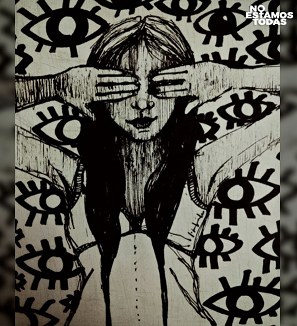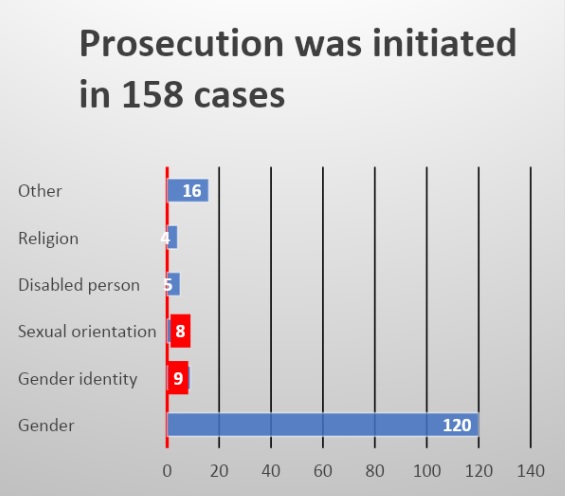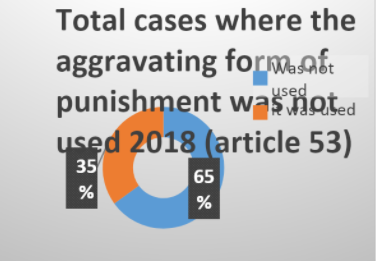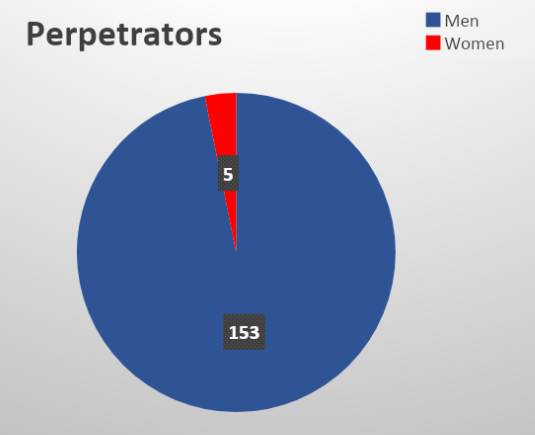Tamar Gegenava

Photo: noestamostodas
Georgia’s Criminal Code recognizes hate crimes as punishable, yet remains too weak to protect transgender women. However, two transgender women, Nata Talikishvili and Dadu Kara, have decided to use the law to fight for their rights. Nata Talikishvili, 31, currently works at the Women’s Initiatives Support Group in Georgia (WISG). At 14, she began to work in jobs that included a petrol station, a bread factory, a construction store and the kitchen of the Ministry of Defense. She was also a sex worker in the streets.
“Being a sex worker was not my choice, but it was my only way to survive,” she said. During her four years in the streets she faced violence regularly and was a victim of hate crime. One negative episode concerned a taxi driver who refused to drive her and her friend, when he understood they were transgender women. “He insulted us and finally left us in the street.” She pointed out that this type of behavior was not unusual and happened on a daily basis. "You experience violence on the streets every day. Police do not prevent the violence. To the contrary, we faced humiliation and hatred from the police too.”
Dadu Kara, 28, another transgender woman, tried to commit suicide. “I had financial problems; I was sick; and I was scared of becoming homeless,” she said. Once the police forcefully took her to a psychiatric hospital because of her suicide attempt. “How can they protect us, when they behave with such violence against us?”
Deputy Ombudsmen Ekaterine Skhiladze says the LGBT community is one of the most vulnerable groups in Georgia and needs more protection by the government against homo- and trans-phobic social attitudes. “Assisting these groups should be state policy, and an anti-crisis plan should be drawn up to take into account the specific needs of the LGBT communities,” she said. According to the Criminal code of Georgia, hate crimes are criminal acts committed due to bias towards certain communities, and since 2012 they have been punishable. However, until 2020, such crimes have not been reported in Georgia.
Recently, the General Prosecutor’s office was able to restore data from 2016 till 2020. In 2019, the Human Rights Division of the Office studied hate-motivated and gender-based discrimination crimes. An analysis of the criminal cases studied showed that the quality and effectiveness of measures carried out by specialized prosecutors to detect the bias motive in such criminal cases have increased, and in 2019 several discriminatory motives were identified simultaneously in resolutions by the prosecutors, including gender and religious intolerance, sexual orientation and gender identity, as well as race and ethnicity.
With support from the Council of Europe, a Memorandum of Understanding was drawn up on September 23, 2020 to improve the data collection systems of the State agencies to identify hate crime and discrimination. The statement made by general Procecutor of Georgia Irakli Shotadze, published on police.ge in 2020 said “fighting against crimes committed on the grounds of intolerance is a priority for the Prosecutor's Office of Georgia”.
According to this Office, in 2018 aggravating factors were not considered sufficient for punishment (article 531) for most hate crime cases investigated.
(Prosecutor’s Office data 2016-2018)
 In 2020 Criminal proceedings were brought against 158 persons for intolerance (hate crimes) out of which nine were gender identity cases and eight due to sexual orientation. Most of the cases were reported in Tbilisi. (Prosecutor’s Office official data 2020)
In 2020 Criminal proceedings were brought against 158 persons for intolerance (hate crimes) out of which nine were gender identity cases and eight due to sexual orientation. Most of the cases were reported in Tbilisi. (Prosecutor’s Office official data 2020)
Twelve people suffered injury because of sexual orientation, and eleven because of their gender identity. Almost all of the perpetrators were men. (Prosecutor’s Office data 2020)
Article 14 of the EU Convention on Human Rights guarantees human rights for all and requires that all the rights and freedoms set out in the Act be protected and applied without discrimination. The Council of Europe recommends that any hate crime committed based on gender and sexual orientation should be documented and accounted for by law enforcement agencies in order to identify the facts and provide appropriate assistance to victims and witnesses.
A report issued in 2020 by the Institute for Development of Freedom of Information in Georgia (IDFI) shows that the situation has not improved significantly. Hate crimes still exist and need to be monitored in Georgia. For example, one case that involved violence against a transgender woman was not properly investigated. The prosecution explicitly pointed out intolerance but did not investigate the motives, whereas the victim belonged to a marginalized group. “Finally, the accused was charged with an offense under Article 126 that only cites violence without aggravating factors for punishment,” the prosecution report says.
 Article 531 , however, shows the connection of violence towards transgender women as a hate crime motivated because of sexual orientation or gender identity. In the first part of Article 531 of the Criminal Code of Georgia, a hate crime is condsidered as an aggravating circumstance for the liability for all relevant crimes under this law. According to the Prosecutor’s Office, despite positive legislative changes, their main challenge still remains unresolved. There are still very few cases when Article 531 is taken into account. Sentences were not handed down in most related cases in 2019-2020, as the aggravating factor was not used. Transgender women’s trust in the police remains weak due to a lack of police protection and their attitude of indifference, making cooperation impossible.
Article 531 , however, shows the connection of violence towards transgender women as a hate crime motivated because of sexual orientation or gender identity. In the first part of Article 531 of the Criminal Code of Georgia, a hate crime is condsidered as an aggravating circumstance for the liability for all relevant crimes under this law. According to the Prosecutor’s Office, despite positive legislative changes, their main challenge still remains unresolved. There are still very few cases when Article 531 is taken into account. Sentences were not handed down in most related cases in 2019-2020, as the aggravating factor was not used. Transgender women’s trust in the police remains weak due to a lack of police protection and their attitude of indifference, making cooperation impossible.